![]()
![]()
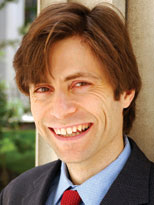
Max Tegmark (1967)
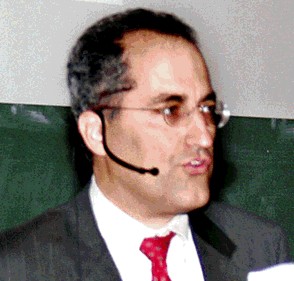
Edward Witten (1951)
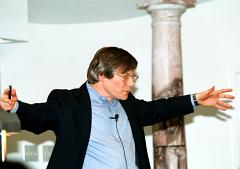
Alan Guth (1947)

Michio Kaku (1947)
Stephen Hawking (1942) author of "A Brief History of Time"
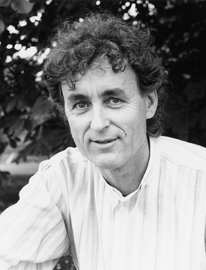
Fritjof Capra (1939) author of "The Tao of Physics"
Fred Alan Wolf (1934) is the author of a number of popular works on the subjects of
Quantum Physics and consciousness, and the relationship between the two
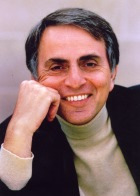
Carl Edward Sagan (1934-1996) pioneered exobiology and
promoted the Search for ExtraTerrestrial Intelligence (SETI)
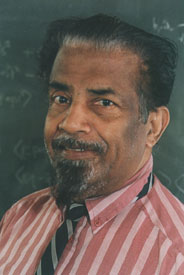
George Sudarshan (1931)
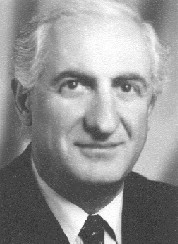
Revaz Dogonadze (1931-1985) was one of the founders of quantum electrochemistry,
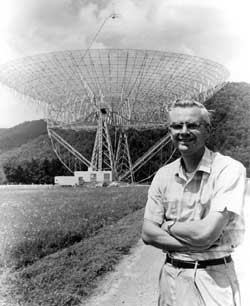
Frank Drake (1930)
Erich Jantsch (1929-1980)

John S. Bell (1928-1990) became well known as the originator of Bell's Theorem,
regarded by some in the quantum physics community as one of the most important theorems of the 20th century
Freeman Dyson (1923) gives visions of the future of technologically advanced societies
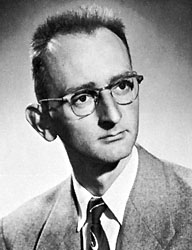
Owen Chamberlain (1920) shared a Nobel Prize with his
collaborator Emilio Segrè for their discovery of the anti-proton,
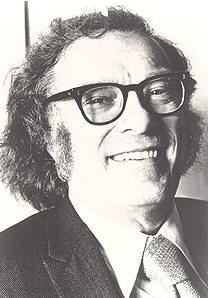
Isaac Asimov (1920-1992)

Carl Friedrich von Weizsäcker (1912) physicist and philosopher,
inventor of the turbulence theory of the genesis of the solar system
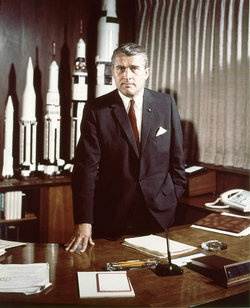
Wernher von Braun (1912-1977) was a German scientist, who later became a naturalised U.S. citizen,
and one of the leading figures in the development of rocket technology in Germany and the United States.
He led the development of the V-1 and V-2. At the end of WW2 he entered the United States through
a then-secret effort named Operation Paperclip. There, he worked the US ICBM program and later,
upon that agency's creation for NASA. Today, he is regarded as the "father" of the United States space program
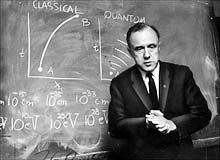
John Archibald Wheeler (1911)
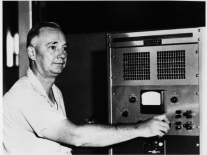
Grote Reber (1911- 2002)
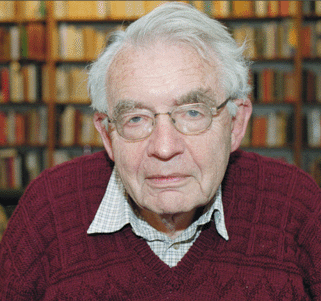
Hendrik Casimir (1909-2000)

Louis Essen (1908-1997) his most notable achievements were in the
precise measurement of time and the determination of the speed of light
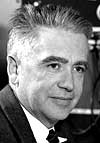
Emilio G. Segrè (1905-1989) discovered the anti proton with Owen Chamberlain,
and artificially synthesized technetium the first chemical element which does not occur in nature
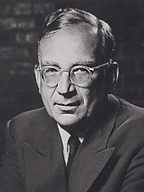
George Gamow (1904-1968)
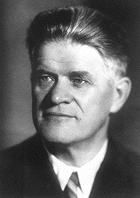
Pavel Alekseyevich Cherenkov (1904-1990) was first to observe the Cerenkov effect,
associated with charged atomic particles moving at velocities higher than the speed of light in a local medium
Robert Oppenheimer (1904-1967) was the scientific director of the Manhattan Project
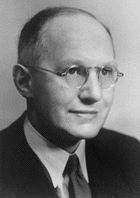
Ernest Walton (1903)
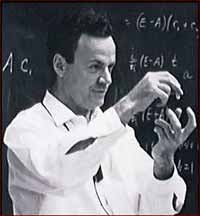
Paul Dirac (1902-1984) building on Pauli's work on nonrelativistic spin systems,
he derived the Dirac equation, a relativistic equation describing the electron.
This work led Dirac to predict the existence of the positron, the electron's antiparticle,
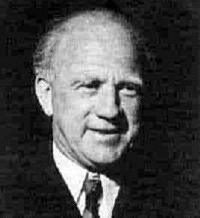
Werner Heisenberg (1901-1976) was one of the founders of quantum mechanics,
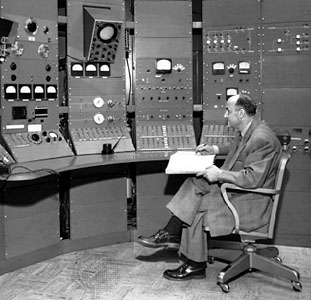
Enrico Fermi (1901-1954) most noted for his work on beta decay, the
development of the first nuclear reactor, and for the development of quantum theory
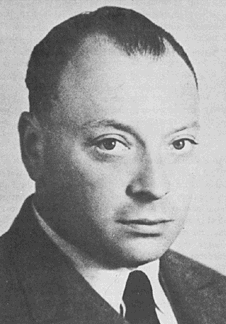
Wolfgang Ernst Pauli (1900-1958) is most famous for his "Pauli exclusion principle,"
which states that no two electrons in an atom can have the same four quantum numbers
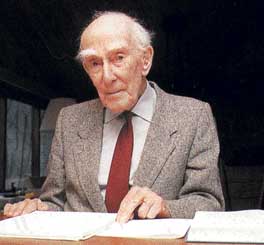
Jan Oort (1900-1992) proved that the Milky Way galaxy rotates
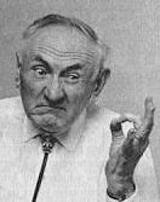
Fritz Zwicky (1898-1974)
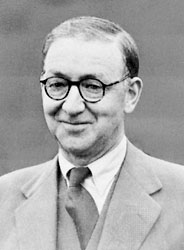
John Douglas Cockcroft (1897-1967)

Hermann Oberth (1894-1989)
Satyendra Nath Bose (1894-1974)
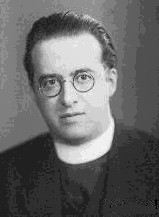
Georges-Henri Lemaître (1894-1966)
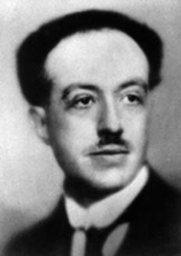
Louis de Broglie (1892-1987) formulated the de Broglie hypothesis
stating that any moving particle or object had an associated wave
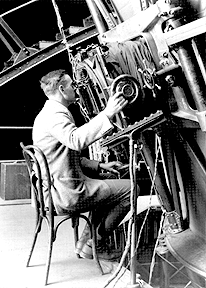
Edwin Hubble (1889-1953)
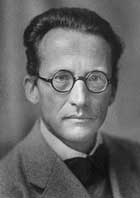
Erwin Schrödinger (1887-1961) discovered the Schrödinger wave equation,
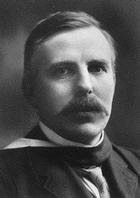
Ernest Rutherford (1871-1937)
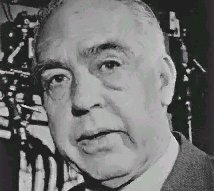
Niels Bohr (1885-1962) made essential contributions to understanding atomic structure and quantum mechanics
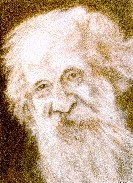
Gaston Bachelard (1884-1962) reflections on the relativistic and quantum revolutions,

Max Born (1882-1970) he formulated the now-standard interpretation of the
probability density for ψ*ψ in the Schrödinger equation of quantum mechanics
Science (1880)
Albert Einstein (1879-1955) proposed the theory of relativity
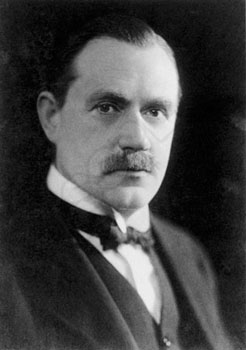
William Henry Eccles (1875-1966) was a pioneer in the development of radio communication, he
invented the term Diode to describe an evacuated glass tube containing two electrodes; an anode and a cathode
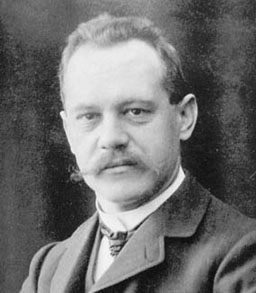
Arnold Sommerfeld (1868-1951)
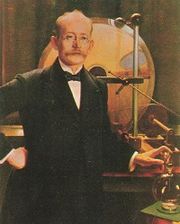
Kristian Birkeland (1867-1917)
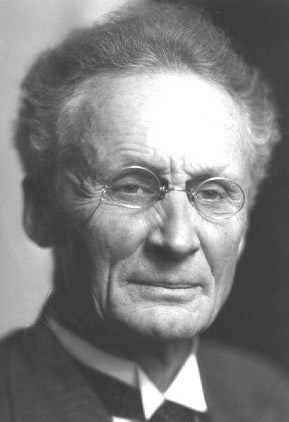
Vilhelm Friman Koren Bjerknes (1862-1951) meteorologist who
did much to found the modern practice of weather forecasting
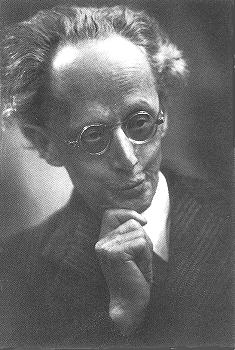
Friedrich Dessauer (1881-1963)
nature (November 4, 1869)
Pierre Maurice Marie Duhem (1861-1916) energeticist
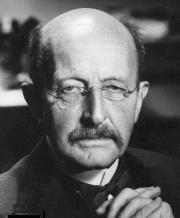
Max Planck (1858-1947) is considered to be the inventor of quantum theory
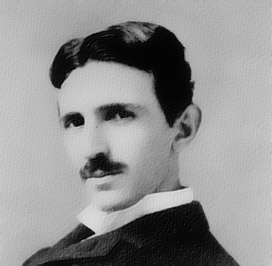
Nikola Tesla (1856-1943)
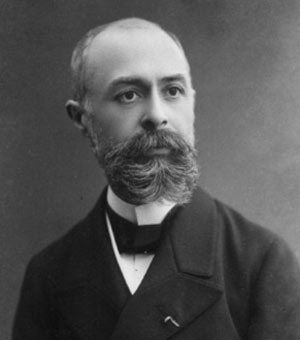
Henri Becquerel (1852-1908) accidentally discovered radioactivity
in 1896 while investigating phosphorescence in uranium salts
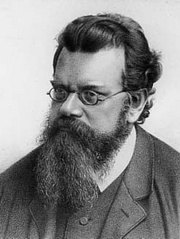
Ludwig Boltzmann (1844-1906) famous for the invention of statistical mechanics
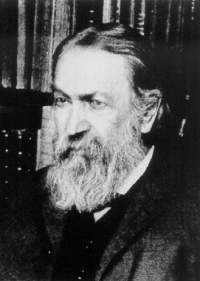
Ernst Mach (1838-1916) deduced and experimentally confirmed the existence of a shock
wave which has the form of a cone with the projectile at the apex. The ratio of the speed of
projectile to the speed of sound v/c is now called the Mach number
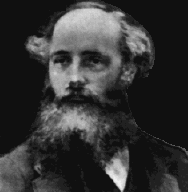
James Clerk Maxwell (1831-1879) developed a set of equations expressing the basic laws
of electricity and magnetism as well as the Maxwell distribution in the kinetic theory of gases
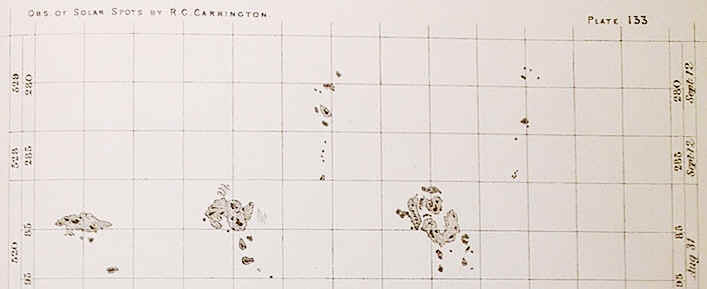
Richard Carrington (1826-1875)
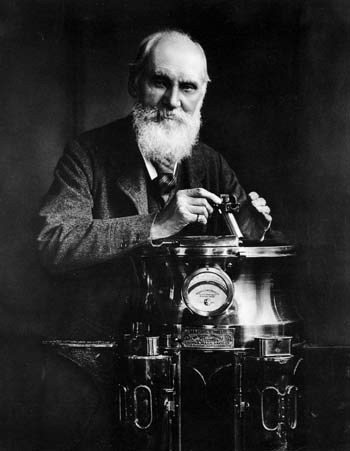
Lord Kelvin (1824-1907) did important work in thermodynamics.
The SI base unit of temperature, the Kelvin, is named after him
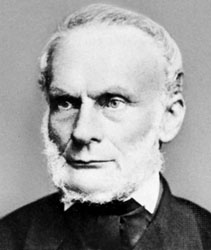
Rudolf Julius Emanuel Clausius (1822-1888) was one of the founders of thermodynamics, his most important
paper, on the mechanical theory of heat, first stated the basic ideas of the second law of thermodynamics

Hermann von Helmholtz (1821-1894) his work is influenced by the philosophy of Fichte and
Kant, whose theories he tried to trace in empirical matters like physiology, his most important
scientific achievement was a treatise on the conservation of energy
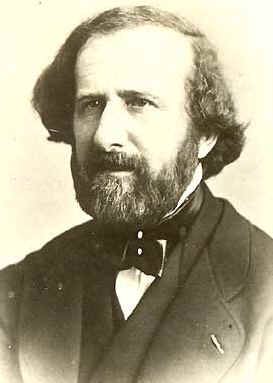
Hippolyte Fizeau (1819-1896)
Jean Bernard Léon Foucault (1819-1868)
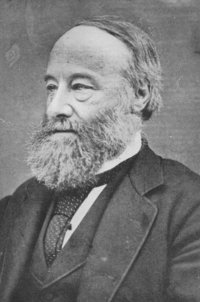
James Prescott Joule (1818-1889) studied the nature of heat, and discovered its relationship
to mechanical work. This led to the theory of conservation of energy (the First Law of Thermodynamics)
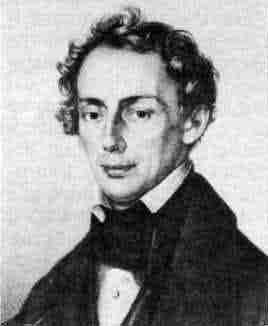
Christian Doppler (1803-1853) most famous for the hypothesis of what is now known as the Doppler effect
which causes the frequency of a wave to apparently change as its source moves toward or away from you
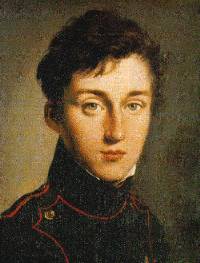
Nicolas Léonard Sadi Carnot (1796-1832) his essay may be taken as initiating the modern theory of thermodynamics
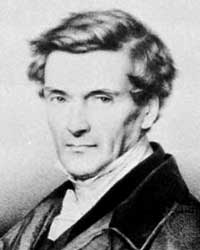
Gaspard-Gustave de Coriolis (1792-1843)
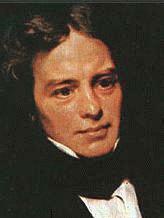
Michael Faraday (1791-1867) contributed significantly to the fields of electromagnetism and
electrochemistry, he also invented the earliest form of the device that was to become the Bunsen burner
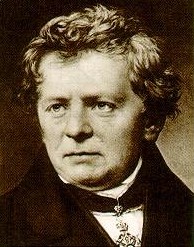
Georg Ohm (1789-1854) his name has been incorporated in the terminology of electrical science in Ohm's Law
the proportionality of current and voltage in a resistor, and adopted as the SI unit of resistance, the ohm (symbol Ω)
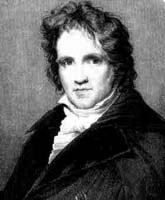
Friedrich Bessel (1784-1846)
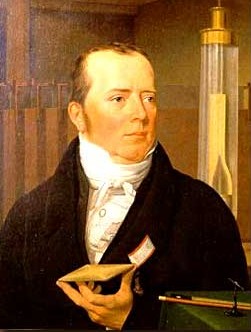
Hans Christian Ørsted (1777-1851) discovered the relationship between electricity and magnetism

André Ampère (1775-1836) is generally credited as one of the main discoverers of
electromagnetism. The ampere unit of measurement of electric current is named after him
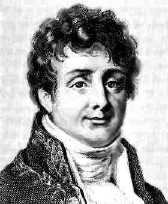
Joseph Fourier (1768-1830) is best known for initiating the investigation of Fourier series and
their application to problems of heat flow, the Fourier transform is also named in his honor.

John Leslie (1766-1832) gave the first modern account of capillary action
and froze water using an air-pump in 1810, the first artificial production of ice
Konstantin Tsiolkovsky (1857-1935)
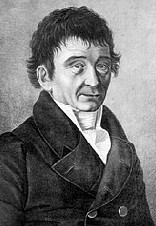
Ernst Chladni (1756-1827) his work on vibrating plates and the calculation of
the speed of sound for different gases made him the founder of acoustics
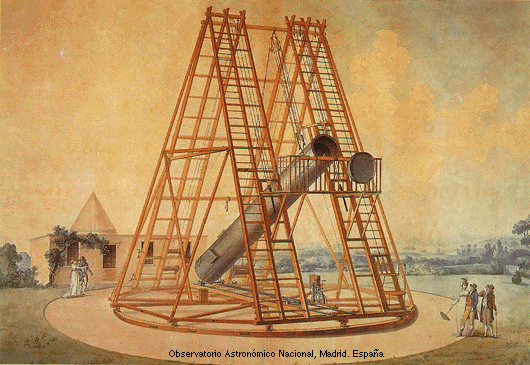
William Herschel (1738-1822)
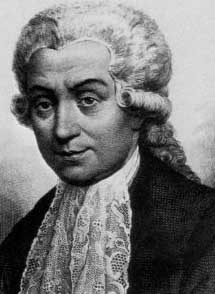
Luigi Galvani (1737-1798)
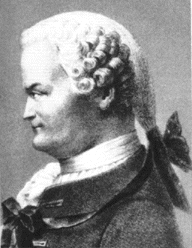
Johann Heinrich Lambert (1728-1777)
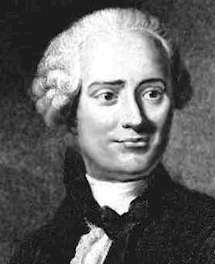
Jean le Rond d'Alembert (1717-1783)
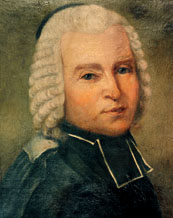
Nicolas Louis de Lacaille (1713-1762)
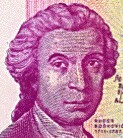
Rudjer Josip Boscovich (1711-1787) is famous for his atomic theory, which inspired
Michael Faraday to develop field theory for electromagnetic interaction
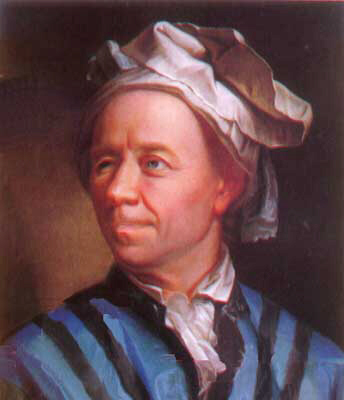
Leonhard Euler (1707-1783) fluid mechanics
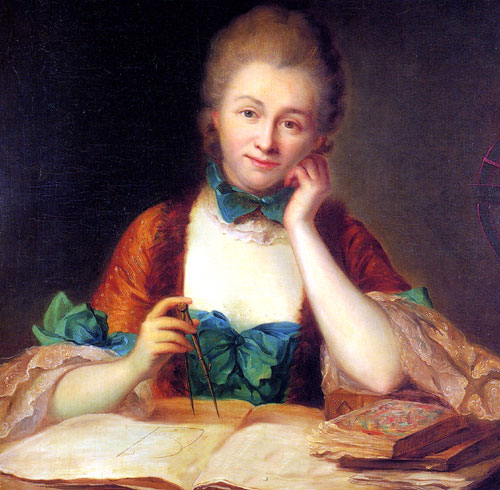
Émilie du Châtelet (1706-1749)
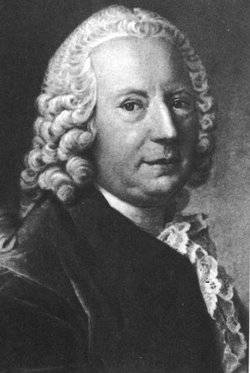
Daniel Bernoulli (1700-1782)

John Theophilus Desaguliers (1683-1744)
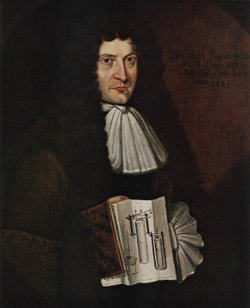
Denis Papin (1647-1712)
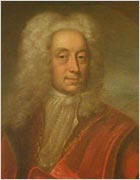
Ole Rømer (1644-1710) was a Danish astronomer who made
the first quantitative measurements of the speed of light (1676)
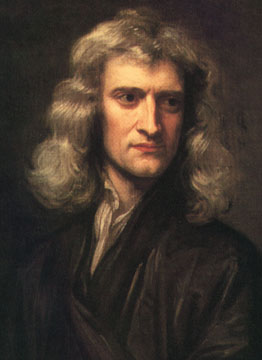
Sir Isaac Newton (1643-1727) wrote the Philosophiae Naturalis Principia Mathematica in which
he described universal gravitation and, via his laws of motion, laid the groundwork for classical mechanics.
He also shares credit with Gottfried Wilhelm Leibniz for the development of differential calculus
Christian Huygens (1629-1695) achieved note for his arguments that light consisted of waves
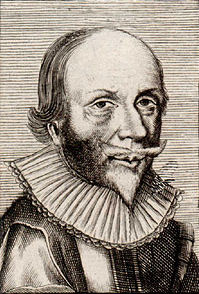
Robert Fludd (1574-1637)
Johannes Kepler (1571-1630) was an assistant to Tycho Brahe.
Later he became best known for his laws of planetary motion

Galileo Gallilei (1564-1642) his achievements include improving the telescope, a variety
of astronomical observations, the first law of motion, and supporting Copercanicanism effectively

Giordano Bruno (1548-1600)
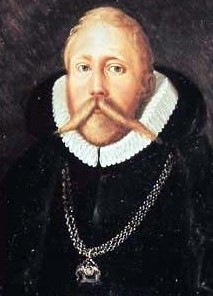
Tycho Brahe (1546-1601)
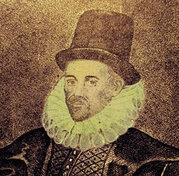
William Gilbert (1544-1603)
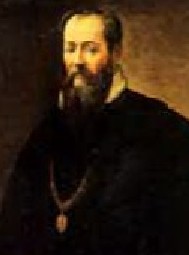
Bernardino Telesio (1509-1588)
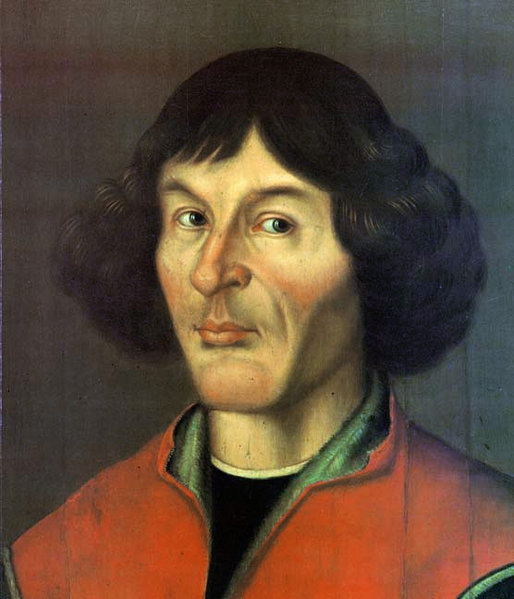
Nikolaus Copernicus (1473-1543) developed the heliocentric theory of the solar system
in a form detailed enough to make it scientifically useful
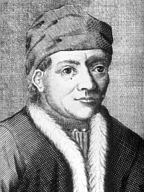
Johannes Müller von Königsberg (1436-1476)
Jean Buridan (1300-1358)
Cleomedes (fl. 2nd cent.)
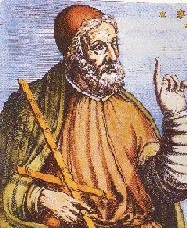
Claudius Ptolemy (85-165) astronomer
Wang Ch'ung (27-97)

Lucretius (99-55 bc) author of "On the Nature of Things"
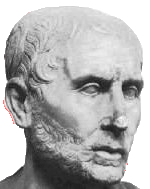
Posidonius (153-51 bc)
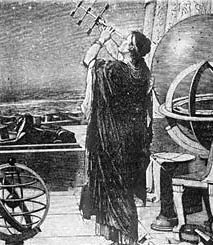
Hipparchus (190-120 bc) is considered the greatest astronomical observer of antiquity

Apollonius of Perga (262-190 bc)
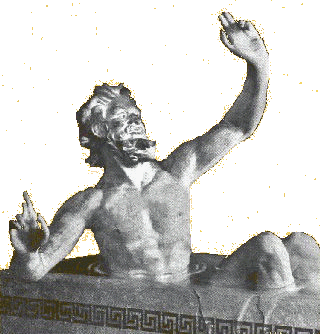
Archimedes (287-212 bc) is famous for having coined the phrase "eureka"
which he exclaimed after he discovered the principle of displacement
Autolycus of Pitane (310 bc)
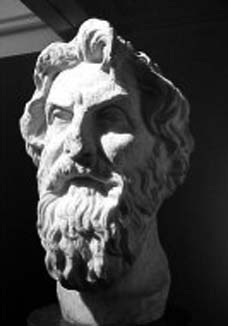
Aristarchus of Samos
(310-230 bc)
greek astronomer who was the first
to propose that the sun is the center of the universe and that the earth moves around it

Epicurus (341-270 bc) founded his teachings on many of the same principles as Democritus
Strato of Lampsacus (355-267 bc) expanded on Aristotle's physics
Callippus (370-300 bc)
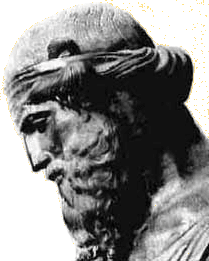
Aristotle (384-322 bc)
Heraclides Ponticus (387-312 bc) anticipated the thinking of later astronomers
Hicetas (400-335 bc)
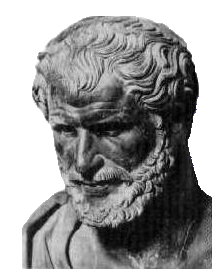
Democritus (460-370 bc) developed the atomic theory from Leucippus
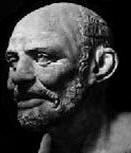
Leucippus (480-420 bc) is credited with founding atomism
Philolaus (480-405 bc)
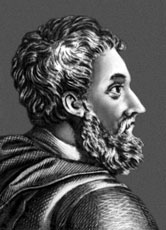
Anaxagoras (500-428 bc)

Alcmaeon (fl. 500 bc)
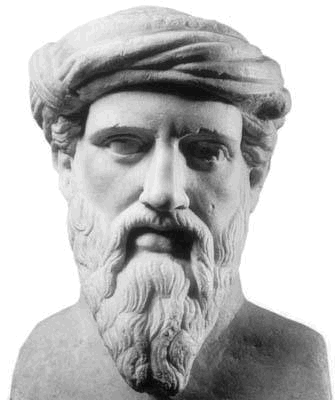
Pythagoras (570-480 bc)
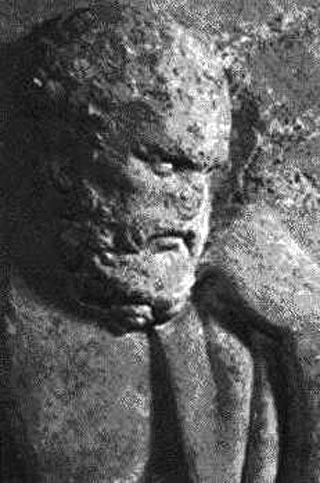
Anaximenes (585-528 bc)

Anaximander (610-546 bc)

Thales (624-547 bc)